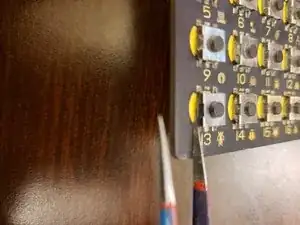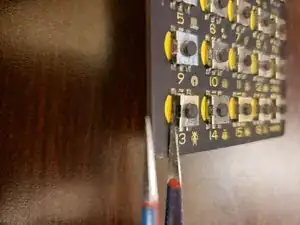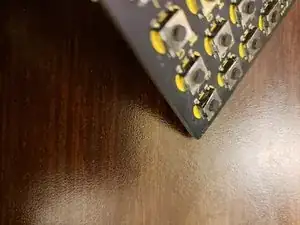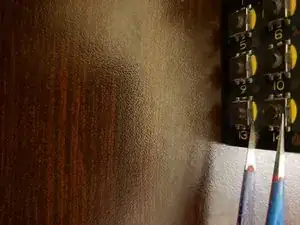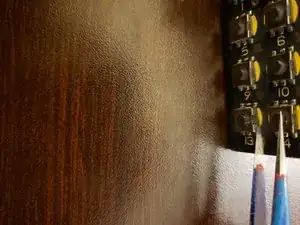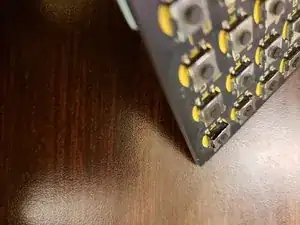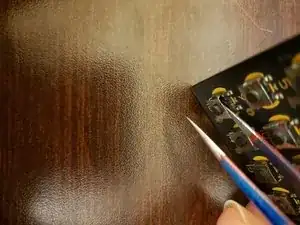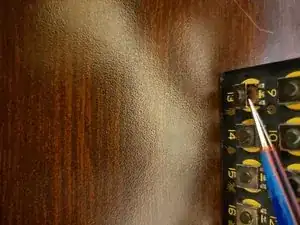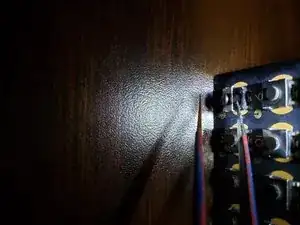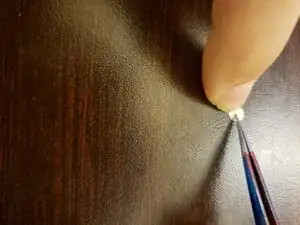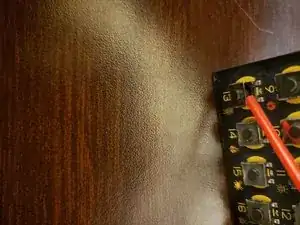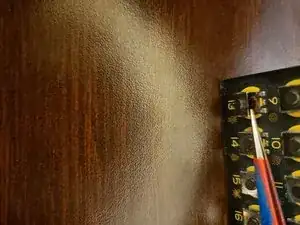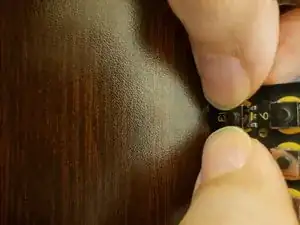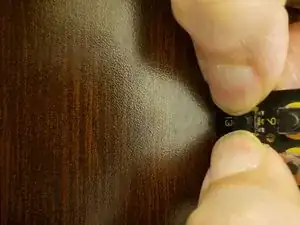Einleitung
Werkzeuge
-
-
Use a sharp pointy tool to pry under the metal tab on the left side of the button. Here I'm using an extra fine tweezer tip. The gap is very tight, so it is tricky to get it under the metal.
-
Once you get the tip into the gap, push just enough to release the metal side from the plastic tab. It should pop up very slightly when that happens. The result can be more easily seen from the top.
-
-
-
Now do the same for the right side of the button. Once the right side is free of the plastic tab, the top of the metal frame moves away slightly from the plastic body.
-
-
-
Now use the tweezers to slightly pry away the metal cover from the body. The cover is still attached by a solder tab to the board, so don't bend it too much. You only need to open it enough to remove the disc inside and to clean the inner contacts.
-
You may need to angle the device downward to let the metal disc inside drop towards the top of the button. Once it is in this position, you can use the tweezers to remove it.
-
-
-
I use the point of the tweezers to brush away any dirt from the center contact inside the button housing.
-
I do the same with the back side of the metal disc.
-
Finally, I use an air can to blow away any loose debris from inside the button housing. Be careful not to blow away the button plunger.
-
Sometimes, you might see an interior with significant corrosion. You may need to use a cotton swab with isopropyl alcohol or similar fluid to clean the contacts and disc. Just make sure the parts are dry before reassembling.
-
-
-
Use the tweezers to reinsert the metal disc. Make sure the convex side is facing outward. Make sure it sits all the way down in the housing and is not hung up on the bottom contact.
-
Next, just push on both sides until the metal frame snaps into place on the plastic tabs on both sides.
-
That's it! Enjoy a button that works properly now.
-
One down, 22 to go!
2 Kommentare
Thanks a ton- super helpful.
For anyone using this guide next, the buttons' metal frames are held on to the board by a single small tab of metal on the bottom lower edge. It acts somewhat as a hinge when doing a repair like this. That tab snapped when I was doing this repair, and I was concerned that it needed to stay connected for the electrical flow- but it wasn't essential- it's a structural piece that holds the metal frame down.
this guide saved me from throwing away a working PO. THANK YOU
jr sibz -
